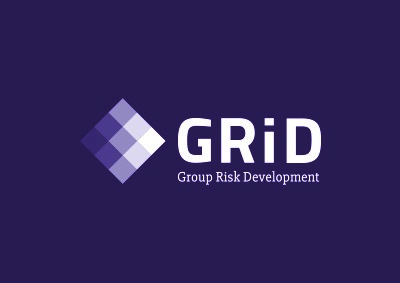Press release 11 May 2017
Claims* for mental illness are nearly as prevalent as for cancer under employer-sponsored group income protection policies, but Group Risk Development (GRiD) suggests employers could make much better use of the mental health support that comes along with group risk products (employer-sponsored life assurance, income protection and critical illness).
The organisation points to three main ways employers may be missing out.
- Employees can be affected by their dependants’ mental ill-health
As one in four** are reported to be affected by mental ill-health, it might be that it isn’t the employee themselves that is suffering, but one of their dependants. This is likely to affect the employee too, and they can access support. Furthermore, in such instances, their dependants can too.
Katharine Moxham, spokesperson for GRiD said: ‘Although welfare counselling must adhere to certain guidelines to avoid potential tax implications, we really want to get the message home that, as employees can be affected when dependants suffer with mental ill-health, some help can also be provided to an employee’s dependants via an Employee Assistance Programme (EAP). Many group risk policies include access to these services at no extra cost.’
- Support can often be accessed by all employees, not just those who are insured
Mental ill-health can affect anyone at any time in their lives – not just employees at a certain level that might be offered core employee benefits. Group risk help comes into its own here. The support under a group-risk-facilitated EAP for example is frequently extended to everyone in a company, not just those directly insured (for instance, senior management). Again, often at no extra cost.
- All group risk products can offer mental health support
Mental health support is not just the domain of gilt-edged group income protection. Support is frequently also found attached to group life assurance and group critical illness products. Employers don’t need them all in place to access support, but they do need the right ones for them.
Employers increasingly recognise the value to their business in having a healthy workforce so group risk protection support is moving forward to include help here too, for example giving access to GP services, health tracking apps as well as mental health support.
Moxham continued, ‘Anyone who’s had to navigate the NHS for mental health support will know that it’s far from quick and far from simple. If they go privately, it’s far from cheap. Employers know they need to have a mental health policy in place to support their staff but might well be at a loss at how to implement it. The good news is that help is there within group risk provision. Providers can also offer preventative support, stress management, fast-track access to counselling, second medical opinion services and line-manager training to help identify signs of mental ill-health, as well as how to encourage staff to make use of the support available.’
Far from discouraging employers from making use of the mental health support provided with group risk products, the group risk industry actively encourages more use. Providers work hard at developing solutions that are designed to help employers and their staff every day, and those companies that make use of them can’t sing their praises highly enough.
Moxham concludes: ‘Group risk products include some of the best-value ways to support mental health. Employers are expected to do more and more to look after their staff, and the group risk industry recognises this and has done more and more to help them do just that. We’re urging employers to talk to their advisers and access the support that’s been designed for them. Chances are, they’ll be surprised at how much support is available to them, and equally surprised at the good value.’
- Ends –
*GRiD Claims Survey 2017
https://grouprisk.org.uk/2017/05/08/group-risk-industry-supports-record-number-families-2016
For further information please contact:
Sharon Mason
SMUK Marketing and PR
smason@smuk.org.uk
Mob: 07747 611773
Land: 01252 843350
Katharine Moxham
Spokesperson for GRiD
Katharine.moxham@grouprisk.org.uk
Mob: 07887 512508
Notes for editors
About GRiD
Group Risk Development (GRiD) is the industry body for the group risk protection sector, promoting the value to UK businesses of providing financial protection for their staff, enhancing their wellbeing and improving employee engagement. Our membership includes insurers, reinsurers and intermediaries who have a collective wealth of experience built over years of operating in the group risk protection market. Under the chairmanship of Lee Lovett, CEO of Ellipse, GRiD aims to promote group risk through a collective voice to Government, policymakers, stakeholders and employers.
GRiD works with government departments and regulators involved in legislation and regulation affecting group risk benefits, and with other organisations involved in the benefits and financial protection arenas. GRiD also seeks to enhance the industry’s standing by encouraging best practice and by participating in industry-wide initiatives such as the professional qualification in group risk managed jointly with the Chartered Insurance Institute.
GRiD’s media activity aims to generate a wider awareness and understanding of group risk products and their benefits for employers and employees.
GRiD’s dedicated spokesperson, Katharine Moxham, provides expert media comment on a full range of group risk issues.
Follow Katharine Moxham on Twitter @KMoxham


